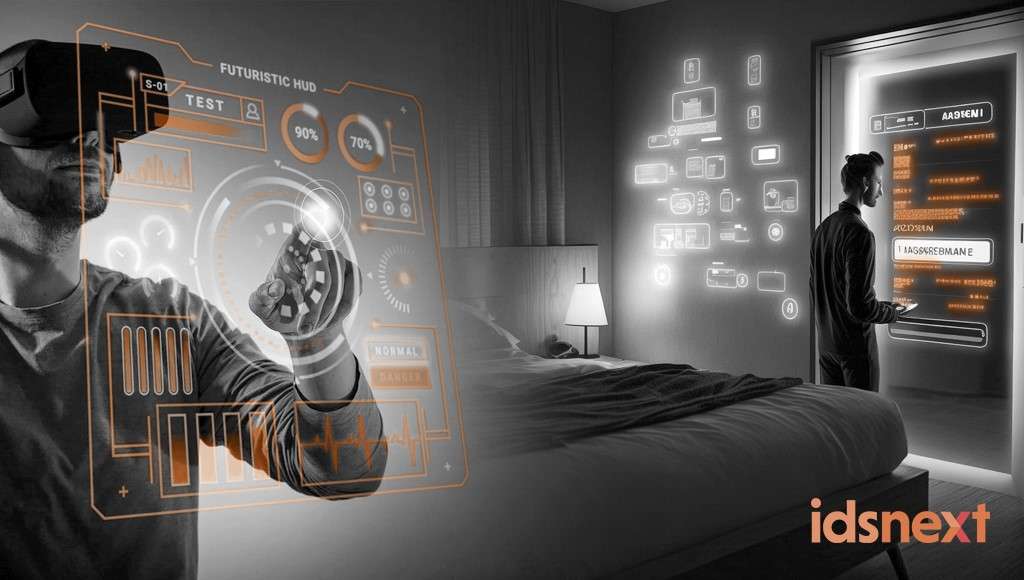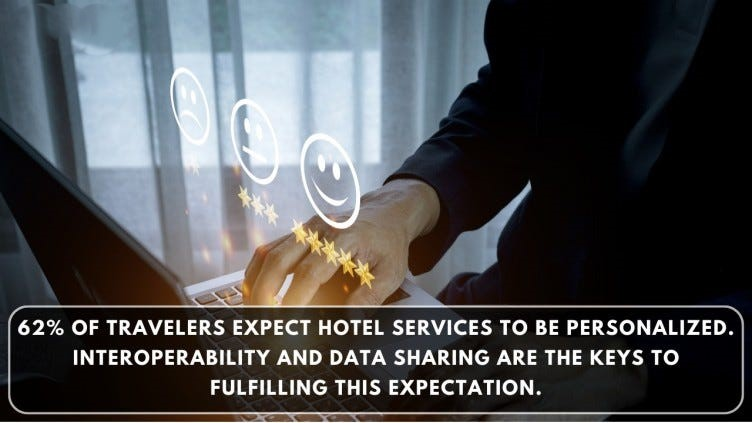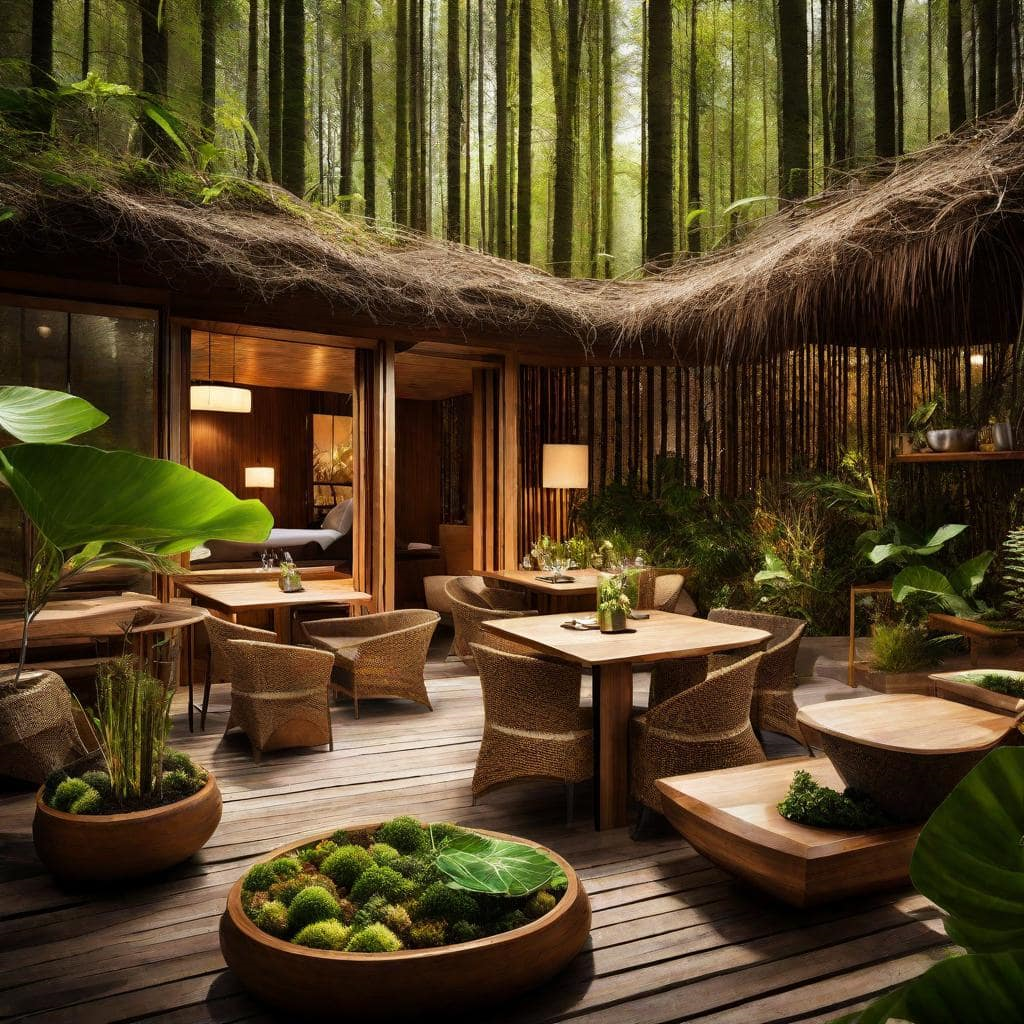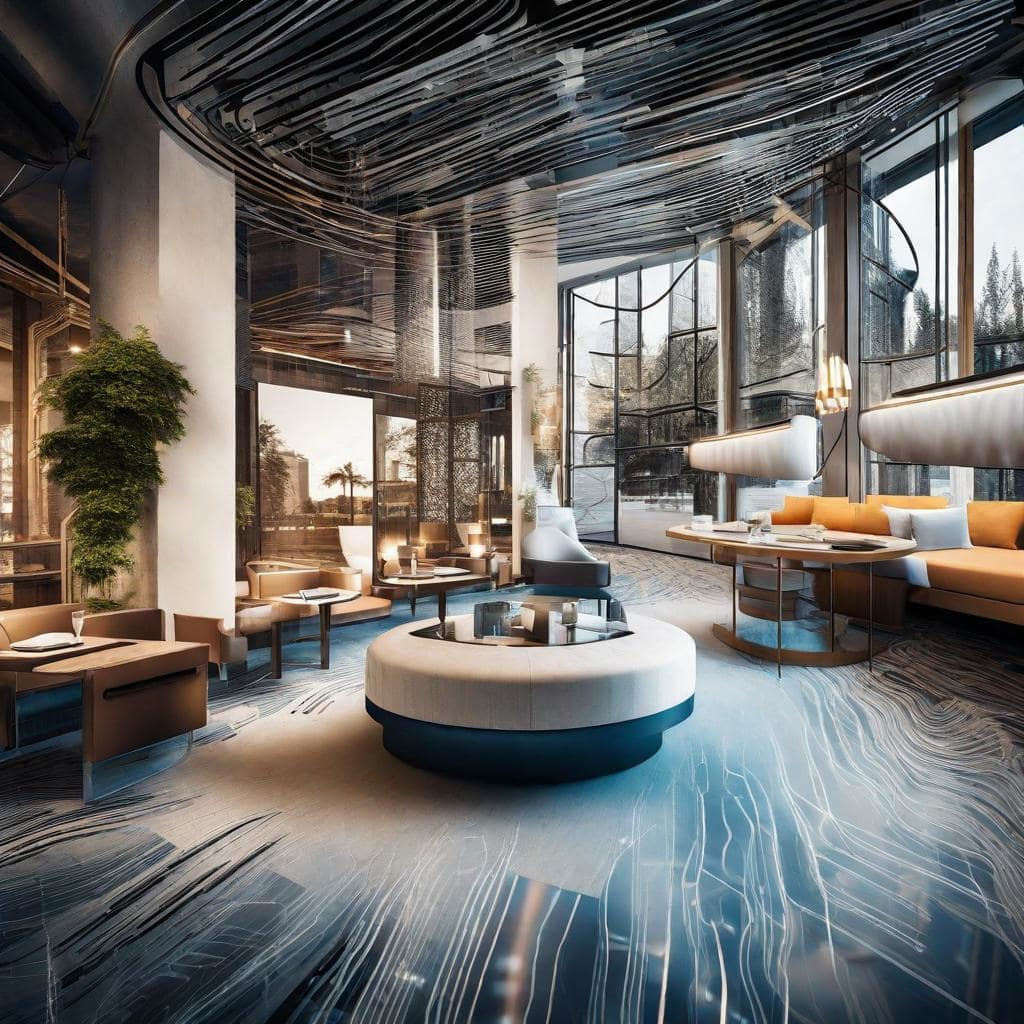
The hospitality industry is undergoing a rapid transformation as it adapts to changing consumer trends and embraces digital technology. In today's digital age, consumers have higher expectations when it comes to their guest experience, and hotels and restaurants must keep up with these demands to stay competitive. This article explores the key trends in the hospitality industry and provides insights on how businesses can adapt to meet these evolving consumer needs.
Digital transformation has become a buzzword across industries, and the hospitality sector is no exception. Embracing digital technology is crucial for hotels and restaurants to stay relevant and enhance the guest experience. From mobile apps to social media and online reviews, digital channels play a significant role in shaping consumer perceptions and decision-making.

Mobile apps have revolutionized the way guests interact with hotels and restaurants. With the increasing reliance on smartphones, hotels are leveraging mobile apps to provide personalized services, streamline check-in and check-out processes, and offer convenient features such as room service requests and concierge recommendations. These apps allow guests to have a seamless and customized experience, enhancing their satisfaction and loyalty.
Social media has become a powerful tool for hotels and restaurants to connect with their target audience, build brand awareness, and engage with customers. By leveraging platforms like Facebook, Instagram, and Twitter, businesses can showcase their unique offerings, share user-generated content, and respond to customer inquiries and reviews. Social media also provides a platform for hotels to run targeted marketing campaigns, driving bookings and revenue.
Online reviews have a significant influence on consumers' decision-making process. Today, travelers rely heavily on platforms like TripAdvisor, Yelp, and Google Reviews to read about other guests' experiences before choosing a hotel or restaurant. Positive reviews can boost a business's reputation and attract new customers, while negative reviews can have a detrimental impact. It is crucial for businesses to actively monitor and respond to reviews, addressing any concerns and demonstrating their commitment to excellent customer service.
Personalization is a key trend in the hospitality industry, driven by consumers' desire for tailored experiences. Today's guests expect hotels and restaurants to understand their preferences and provide customized recommendations and services. Here are some ways businesses can deliver personalized guest experiences:

Artificial intelligence has the potential to revolutionize the hospitality industry by enabling businesses to analyze vast amounts of data and deliver personalized experiences. AI-powered chatbots can assist guests with inquiries and provide recommendations based on their preferences. Machine learning algorithms can analyze guest data to anticipate needs and offer personalized promotions and upgrades. By harnessing AI, hotels and restaurants can create memorable experiences that cater to individual preferences.
Omnichannel marketing involves creating a seamless and consistent experience across various touchpoints, including online and offline channels. Hotels and restaurants can leverage customer data from multiple channels to provide a cohesive and personalized experience. For example, a guest who interacts with a hotel through social media, books a room on the website, and checks in through a mobile app should have a seamless experience across all these touchpoints. This integration of channels allows businesses to understand and cater to individual preferences, enhancing the overall guest experience.
Data analytics plays a crucial role in understanding guest preferences and providing personalized experiences. By analyzing guest data, hotels and restaurants can identify trends, anticipate needs, and tailor their offerings accordingly. For example, data analytics can help hotels recommend nearby attractions or restaurants based on a guest's interests, or restaurants can suggest personalized menu options based on dietary restrictions or past dining preferences.
Sustainability has become a top priority for consumers, and the hospitality industry is no exception. Travelers are increasingly conscious of their environmental footprint and seek out eco-friendly accommodations and dining options. Here are some sustainable hospitality practices that businesses can adopt:

Hotels and restaurants can reduce their energy consumption and carbon footprint by implementing energy-efficient technologies and practices. This can include installing LED lighting, utilizing smart thermostats and sensors to optimize energy usage, and implementing water-saving measures such as low-flow faucets and showerheads. By prioritizing energy efficiency, businesses can reduce their environmental impact and appeal to environmentally conscious travelers.
Minimizing waste and implementing recycling programs are essential steps towards sustainable hospitality. Hotels and restaurants can reduce single-use plastics by offering reusable water bottles or implementing refill stations. They can also promote recycling by providing clearly labeled recycling bins and partnering with local recycling facilities. By actively addressing waste reduction, businesses can showcase their commitment to sustainability and attract eco-conscious guests.
Supporting local communities and sourcing locally can contribute to sustainable practices in the hospitality industry. Hotels and restaurants can partner with local farmers, artisans, and suppliers to incorporate locally sourced ingredients into their menus. This not only supports the local economy but also reduces the carbon footprint associated with long-distance transportation. Additionally, engaging in community initiatives and supporting local causes can enhance a business's reputation and foster positive relationships with guests.
As technology continues to advance, the hospitality industry is embracing innovative solutions to enhance the guest experience. Here are a few emerging technologies that are shaping the future of hospitality:

Blockchain technology has the potential to revolutionize various aspects of the hospitality industry, including secure payments, loyalty programs, and identity verification. By leveraging blockchain, hotels can ensure transparent and secure transactions, protect guest data, and streamline loyalty programs. The decentralized nature of blockchain also offers opportunities for seamless cross-border transactions and eliminates the need for intermediaries.
AR and VR technologies are transforming the way guests experience hotels and destinations. Hotels can use AR to provide virtual tours of their rooms and facilities, allowing guests to visualize their stay before making a booking. VR can offer immersive experiences, such as virtual city tours or virtual visits to tourist attractions, enhancing the pre-travel planning process. These technologies add an extra layer of excitement and engagement for guests, ultimately enhancing their overall experience.
The Internet of Things (IoT) enables interconnected devices to communicate and share data, creating a smart and connected environment. In the hospitality industry, IoT can be leveraged to enhance guest comfort and convenience. For example, smart rooms equipped with IoT devices can allow guests to control room temperature, lighting, and entertainment systems through voice commands or mobile apps. IoT can also facilitate efficient energy management by automatically adjusting room settings based on guest occupancy.
In conclusion, the hospitality industry is undergoing a digital transformation to meet changing consumer demands. By embracing technologies like mobile apps, social media, and data analytics, hotels, and restaurants can provide personalized guest experiences and stay competitive in the market. Sustainability and emerging technologies such as blockchain, AR/VR, and IoT are also shaping the future of the industry. By adapting to these trends, businesses can create memorable experiences and build lasting relationships with their guests.
If you need guidance or assistance with finding the perfect accommodation that ticks all your boxes, simply contact us on Tap Here and Write in WhatsApp 📲📲📲 to make use of our concierge services.
Topics:
Topics:
Topics: